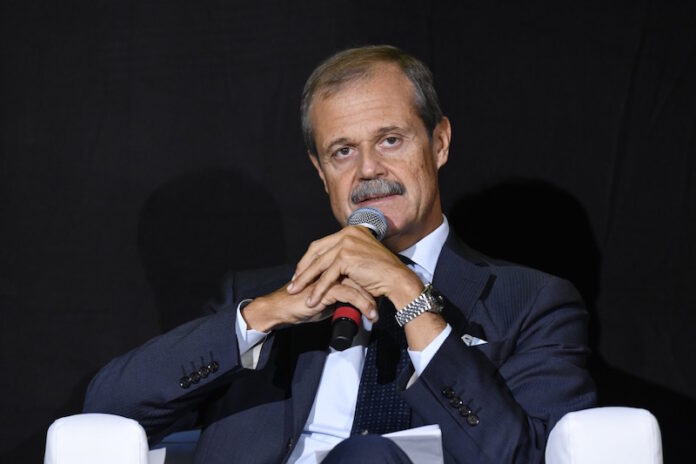First issue (publication) of the monthly column “Briefing“, a note by the President of the Observatory on International Themes of Eurispes, Ambassador Giampiero Massolo.
Analysis
The consequences of the American elections see three stages: the transition (the immediate term); the phases right after the inauguration (short term); the entire mandate (medium term).
In the immediate term, the uncertainty caused by the announced legal battle should not be underestimated, even though a reversal of the electoral outcome is unlikely. The different international reactions to this unprecedented transition are already a relevant element, because they set the tone of relations with the new administration.
The first phases of the mandate will see domestic politics as the priority. This is because of both the further exasperation of polarizations due to the transition as well as the Democrats’ traditional inclination to be more focused than the Republicans on the domestic sphere. Foreign policy will probably be relegated to the back seat and, in essence, no great discontinuity is expected. An important exception is represented by the turnaround on climate, with the US re-joining the Paris Agreements. More in general, from the outset a clear change in the tone and methods of American diplomacy is to be expected, with a shift from Trump’s explicit transactional diplomacy, to a more traditional style and more attentive (at least in the form) to value-related issues: democracy and human rights first and foremost. Hence, the new administration will have more relaxed attitudes towards historical allies, starting from Europe. In particular, with Brussels there could be a de-escalation of trade tensions, while it is more difficult that the structural causes of said tensions will disappear: the Boeing v. Airbus case, the steel and aluminium tariffs, and the digital tax are among the main dossiers that will remain on the table.
American foreign policy will therefore change its face – more “gentle” and open to dialogue – but its stance will remain substantially unchanged.
This consideration also applies to the third phase, i.e. the mandate in its entirety.
The structural trends of the Trump era will last. The great power competition with China will continue to dominate international relations while a weaponization of international economic relations is looming on the horizon. Biden’s America will always be America First, but no longer America Alone: he will try to use historical alliances, starting with the transatlantic one, to put more pressure on China.
It should not be excluded that the US-China competition be increasingly framed as an ideological clash – democracy versus autocracy. This is an element of additional risk, since ideological battles are, by definition, zero-sum games.
The Pivot to Asia and the gradual disengagement from MENA (Middle East and North Africa) – already initiated by Obama – will continue, albeit in a more orderly manner. If the reopening of the Transatlantic Trade and Investment Partnership (TTIP) appears rather unlikely – what is more likely is instead some progress on specific and sectorial agreements – the greater the chances are for the Trans Pacific Partnership (TPP), because of its lesser impact on American jobs and its anti-Chinese role. We cannot, however, expect a return to the indiscriminate globalization of the pre-Trump era: first the great inequalities and then the pandemic have reminded us that openness must go hand in hand with strategic protection of citizens, of economic systems, of national interests.
On the other hand, the posture towards Russia will change more: Biden’s attitude is expected to be more decisive, even if Moscow will not become Washington’s main rival as it was with Obama.
Finally, in some chapters, the Trump era could represent the “perfect alibi” to consider some choices as irreversible. A clear example is the upholding of the American embassy in Israel in the city of Jerusalem or the increased pressure on NATO allies to fulfil their commitments. These are clear demonstrations that presidents may change, but the national interest remains.
What does it mean for the Italian national interest?
Given the situation, Italy has the opportunity to assert its national interest at various levels: multi/plurilateral, regional through the EU, and bilaterally with the US.
Multi/plurilateral: for the upcoming Italian Presidency of the G20, the uncertainty linked to the presidential transition is not negligible. At the same time, the Italian role in the next G20 offers the opportunity to reunite the West around a plurilateral method that, at least among allies, can be a positive-sum game. This applies to the great global challenges (climate, trade, technology, etc.) as well as the US-China competition, but also to the urgent need to refound multilateralism: the transatlantic axis must not disengage from multilateral institutions, but must strengthen its engagement to reform it and prevent the vacuum from being filled by others.
Regional/EU: Italy, as a founding country of the EU and a traditional friend of the US, can help fill the gap left by the UK and become one of Washington’s main interlocutors to mediate on the fundamental dossiers of the EU-US relationship. But let’s not be under any illusions: the increased attention to dialogue expected from the new US administration does not in itself relieve our country, and the EU in general, from the need to take its destiny into its own hands, to do its share of homework.
Bilateral: the gradual and orderly disengagement of the US from the MENA region will need to rely on credible and reliable interlocutors. Italy has the opportunity to reaffirm its transatlantic choice, positioning itself, thanks to its geography and its presence in various forms in the region, as the main partner for the area.





















